by Murtada
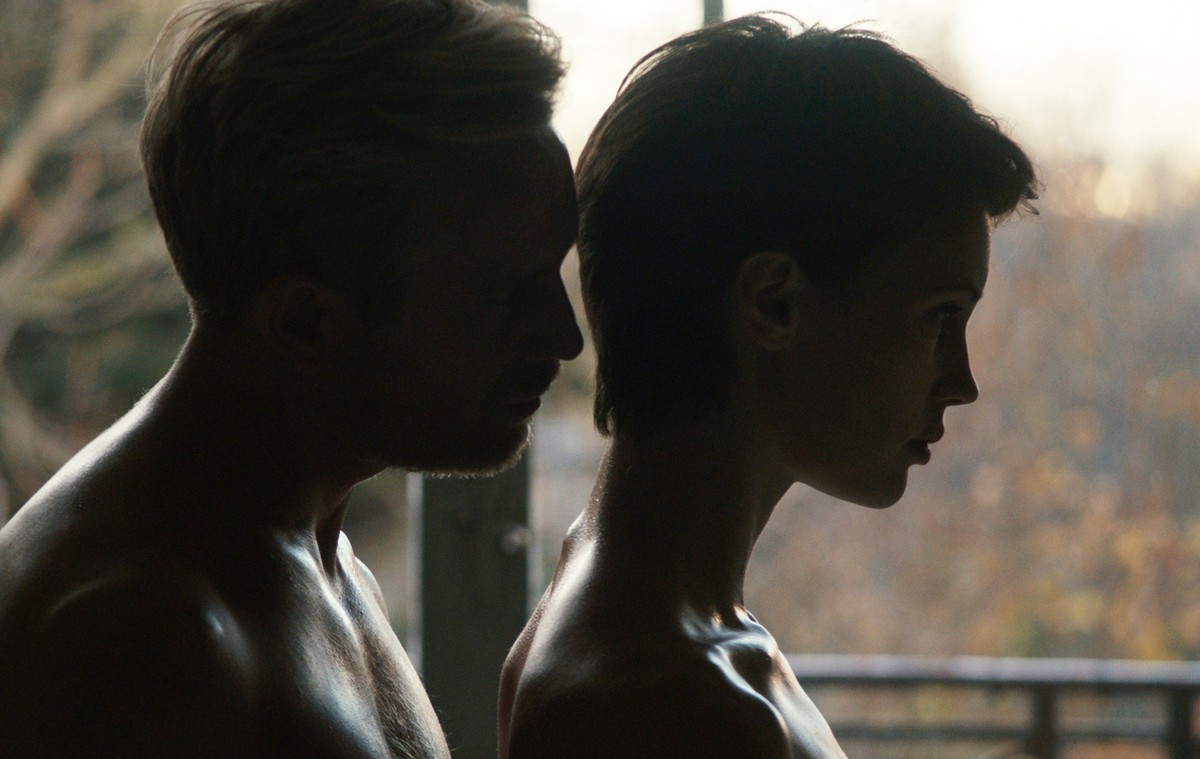
It might be surprising to know that François Ozon likes to learn what children think of his films. He says their responses are clever and innocent, especially if they believe the world on the screen. Though he realizes that he can’t always get their feedback since his movies often deal with adult themes, like the psychosexual thrillers Swimimg Pool (2003), Young and Beautiful (2013) and his latest Double Lover.
Ozon’s films cannot be easily categorized, he has also directed the campy musical 8 Women (2002) and the haunting WW1 romance Frantz (2016). He says...
It may be disturbing for critics because they can’t catalogue or pigeonhole my work. As a cinephile I like different kinds of movies and different genres. As a filmmaker I like to experiment and to have a new challenge each time I make a film. When I’m obsessed with a story and characters, I find the genre that fits the story.”
Double Lover sees him back in familiar territory. An adaptation of a Joyce Carol Oates novel, the film is about Chloe (Young and Beautiful’s Marine Vacth) a fragile young woman dealing with mysterious ailing symptoms, who falls in love with her psychoanalyst, Paul (Jérémie Renier). Soon she discovers that her lover is keeping part of his identity a secret. Twins and Jacqueline Bisset are involved in the labyrinth of a plot that rapidly unfolds. It’s a sexy, gripping thriller that’s lots of fun to watch. Even more playful and tongue in cheek than Ozon’s other erotic thrillers.

We spoke to him recently in New York. [The conversation has been edited and condensed.]
MURTADA: The film is based on a novel by Joyce Carol Oates, a psychological mystery which she wrote under the pseudonym Rosamond Smith. What attracted you to this story?
FRANÇOIS OZON: I read a review that mentioned Joyce Carol Oates said she has a double because she wrote books under a pseudonym. I was curious because I'm a big fan of Oates so I looked for the books under her pseudonym, Rosamund Smith. Thought The Lives of the Twins would be great material for a psycho sexual film but the rights were not available. I gave up the project then 5 years later my producer told me the rights are free. It was just after Frantz which was a very classical movie. I was very excited to go back to something more sexual.
In constructing the story, were there any challenges in trying to make it believable- obviously it’s heightened and jumps between between reality and illusion. Or was that not what you were aiming for?
The idea was to be in the subconscious of this girl, and to play with the levels of reality, dreams and fantasy. It was a kind of game with the audience, something very playful. I have already done that in Swimming Pool. I have always in mind a motto from Luis Buñuel that you have to shoot dreams like reality and shoot reality like dreams. Sometimes it’s clear whether it’s dreams or fantasy and sometimes it’s not. It’s for the audience to decide.
There is great confidence in the tone of the film, despite the fact that it could veer into the ridiculous at any minute.
I'm not afraid of the grotesque because I think when you speak about sexuality and the subconscious you are free to go into very strange and grotesque places. I felt free visually in terms of mise en scene to use many effects I didn't use before in other stories, but in the case of the story of Chloe I had the feeling it was ok.
You are not afraid of the grotesque but are you attracted to it?
Yes. When I was a student I was a big fan of John Waters. To discover the films of Waters, they signified freedom for a young director. Watching Bergman, Buñuel then to see Waters, it was totally mad.
What's your favorite John Waters?
I think I love Polyester because it has no drama. It’s funny I made a film called Criminal Lovers which was a big flop, the reviews were terrible, and the only fan of the film was John Waters. I was very happy.
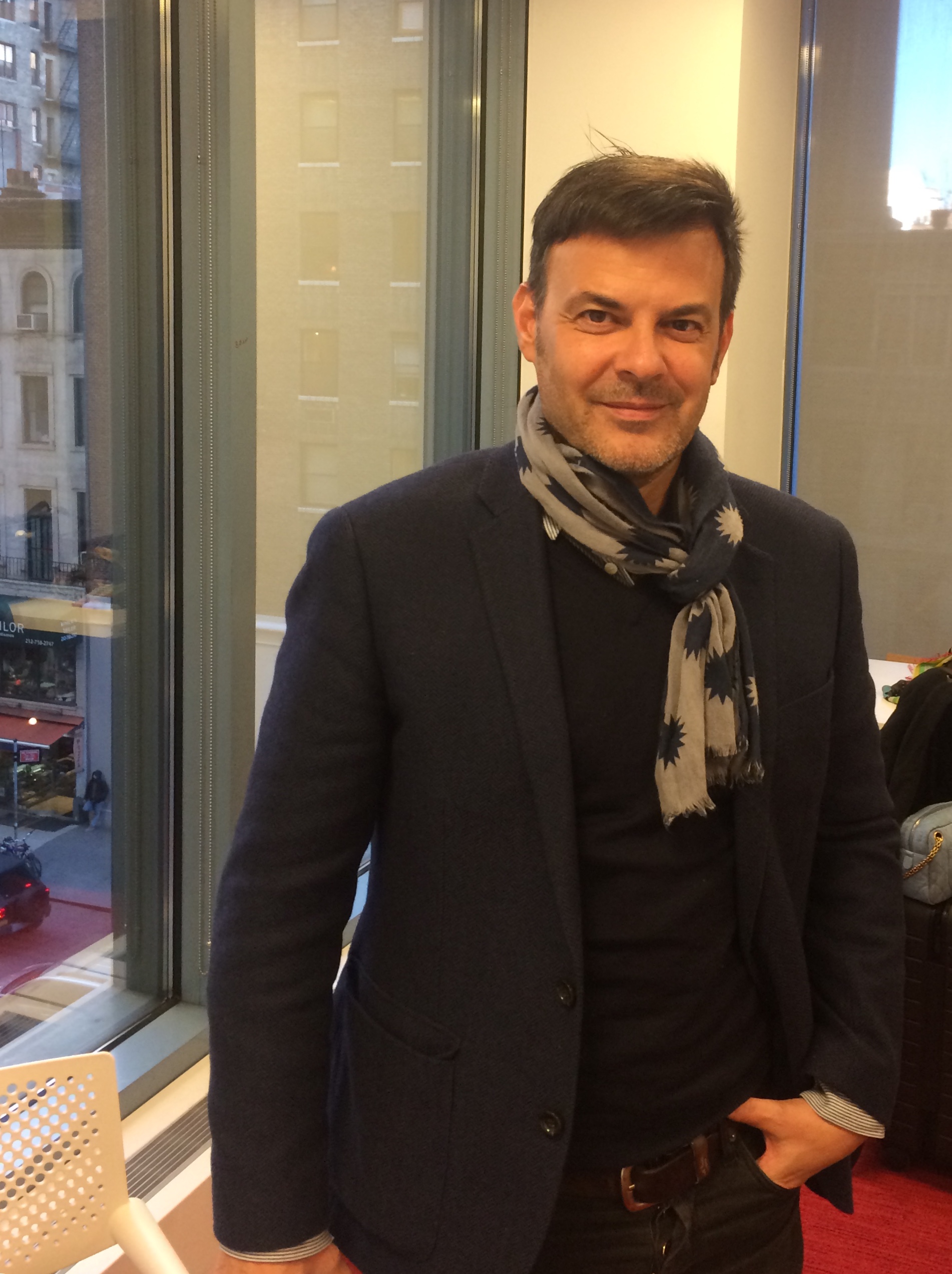 Ozon in NYC
Ozon in NYC
You’ve said you’ve used techniques that you haven't used before. Mirrors and doubles seems obvious for twins yet not in your movie. You also used split screen and brought the characters closer together in the therapy sessions. Why these choices?
To film psychoanalysis can be very boring for people who are not concerned. It's like when people tell you about their dreams. My god I don't want to hear that! So the idea was to be interesting visually and to create a floating attachment to the audience so that they pay attention. It was important in the first 10 minutes of the film to show the key to the story. When you watch the film again you realize she said everything. But at first the audience is not able to understand what's really happening.
The first image after the title is a close up of a vagina turning into an eye. That’s shocking specially for an American audience.
For the French too. (laugh)
Was that your aim. Do you want to shock your audience?
No I didn't want to shock. For me it was to say exactly what the film would be visually. It’s a story about the interiority of a character. A woman searching for a secret, she doesn't know why she’s suffering, or what she has inside, so I wanted to join these two shots, vagina and eye, as a way to tell what the film is. But I didn't realize people today would be so shocked because there are so many porn movies, it’s so easy to see many things. Suddenly when you see that in an auteur movie people are shocked. Actually I think it’s quite beautiful, I like that at first you don't know exactly what it is, maybe a mouth? When you realize what it is, the eye appears.
You certainly get everybody’s attention immediately.
Yes!
Making onscreen sex play like something we haven't seen a million times, how did you do that?
Maybe you haven't had sex with twins thats why! (laugh). I didn't want to make something new, but I knew because of the situation of the twins that it will be something you are not used to watching everyday. It was very funny for the actors and for me to shoot these scenes, and we had a lot of fun. Critics usually ask if it’s difficult to shoot these scenes, actually it’s all choreographed, so we know exactly what will happen, and very often the actors don't want to shoot many takes, so the first take is usually good. It goes fast, the chemistry between Marine and Jérémie was very good and fun.
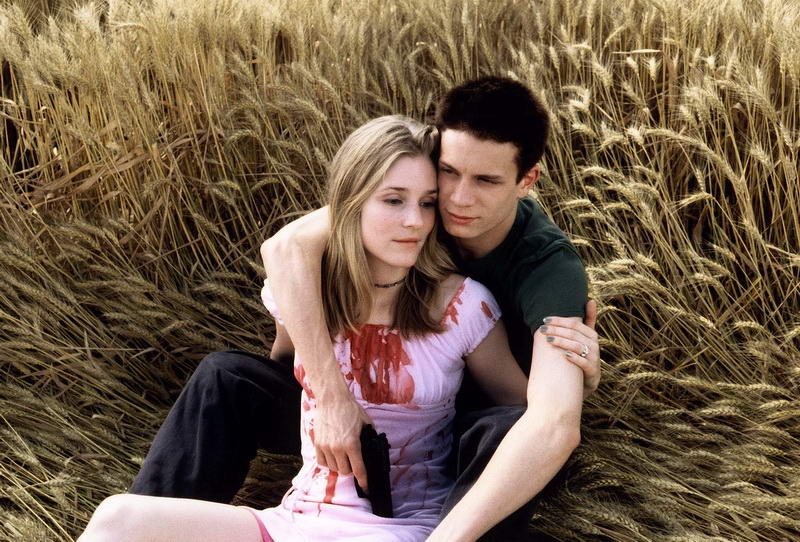 a young Jeremie Renier in CRIMINAL LOVERS (1999)
a young Jeremie Renier in CRIMINAL LOVERS (1999)
They do have great chemistry. You often cast actors more than once. You worked with Jérémie in Potiche and Marine in Young and Beautiful.
And Jérémie in Criminal Lovers.
John Waters' favorite!
They were not the first choice. I didn't have Marine in mind because to me she was still the teenager from Young and Beautiful. Then I realized that she became a mother, she has changed a lot. When we first met she wasn't sure if she wanted to be an actress. She had bad experiences before. After my film she got good feedback, awards, so she decided to become an actress. I was a little bit nervous to propose the part to her because it was again a film with nudity and sexuality. I was afraid she’d say 'no François I don't want to make sex scenes with you again'. But she liked the book by Joyce Carol Oates and realized it was a good opportunity for her to show a new side of her skills.
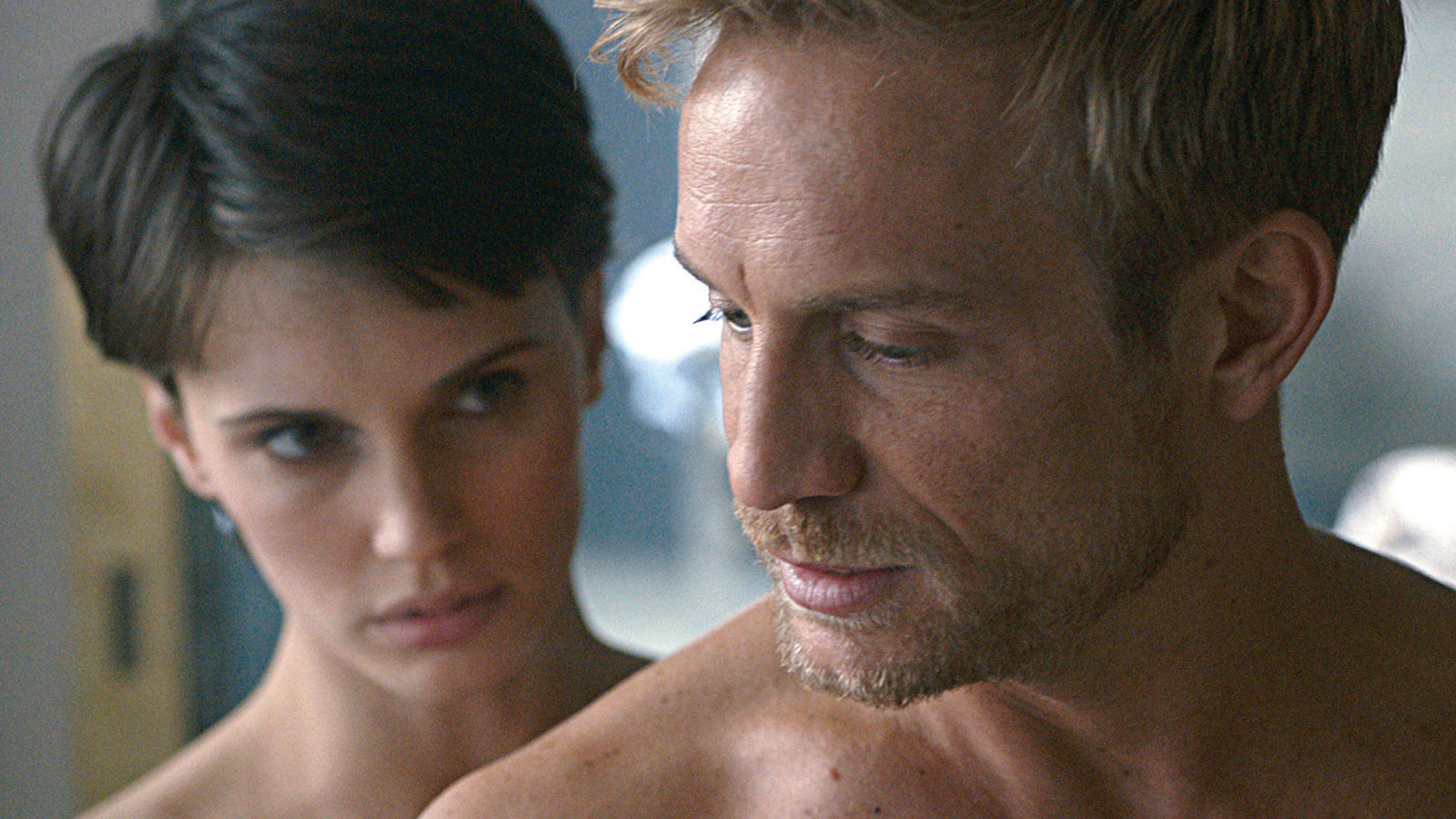
Then I looked for my twins. I thought Jérémie was too young for the part, so I proposed the part to a very famous bankable French actor. He enjoyed the script, but during the process I added the scene with the dildo and he was totally shocked and said he wouldn't do that. I realized after this experience with this actor that if I really wanted to make the film I had in mind I had to work with actors I trust, people who know me, who know how I work, who are not afraid, and respect my work.
So I called Jérémie and he said 'don't worry I will do what you want with the dildo.' It was very fun to work again with Jérémie and I think he's very strong in the film. It was a real pleasure.
The film is definitely a showcase for both actors. You’re one of a select few French directors whose films travel worldwide and almost always get U.S. distribution. How do you explain that?
Not always. One of my films wasn't released here.
Which one?
The one in English with Michael Fassbender. Angel.
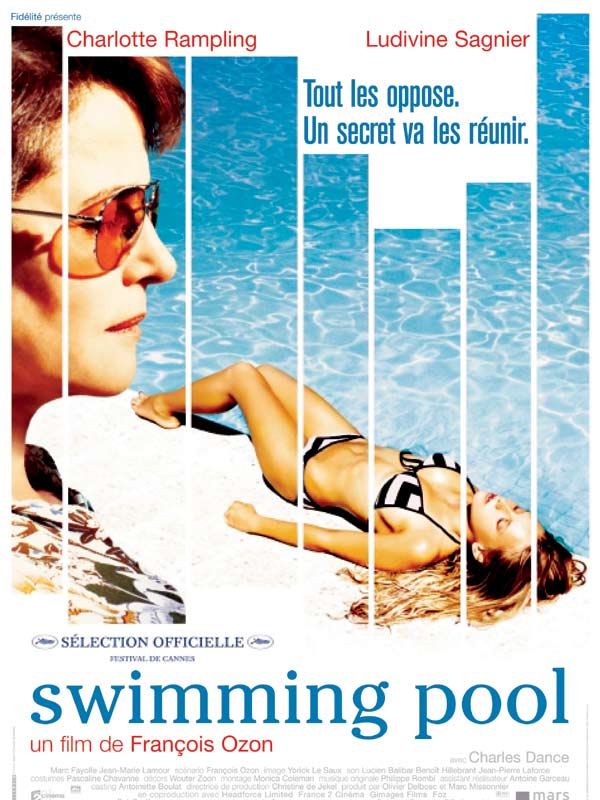 It was on Netflix, that’s where I saw it.
It was on Netflix, that’s where I saw it.
On Netflix really? I’m very lucky. I had some good distributors who worked on my movies. One of my most successful films in America was Swimming Pool, which wasn't well received in France. I don't understand why that was successful in America. You have to explain to me.
That was the first of your films that I saw.
It helps maybe the films that come after it. I’m very inspired by the directors in 1940s and 1950s who came from Europe to Hollywood. For me those were the best Hollywood movies. Like Billy Wilder, Lubitsch, Otto Preminger, Hitchcock. I feel close to them. They made musicals, thrillers, comedies, different genres. I would’ve been happy to work at that time.
Cannes is important, gives films an international profile but critics there can be brutal. Do you like going there?
Yes especially French critics. You know I've always been controversial. I never had unanimous critical reception for my movies. I'm used to that. I'm never surprised. Frantz was proposed to Cannes but they didn't take it. They took Double Lover. It’s funny because I realized that all my films that went to Cannes were my most straight movies, with female sexy scenes. Young and Beautiful, Swimming Pool and this one.
Maybe that's what they like there!
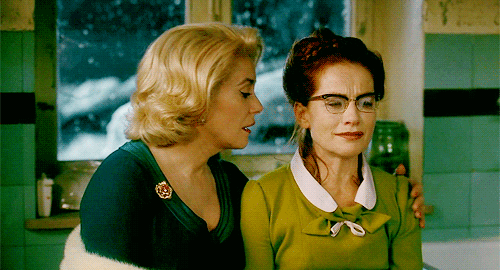
Let’s talk about some of the iconic actresses you’ve worked with. Our readers would get a kick out of that. Let’s start with Catherine Deneuve.
What do you want to know about Catherine? She’s a legend of French cinema. For me it was a great experience to work with her twice. And the irony of our relationship is that it began very badly. We didn't have a good experience on 8 Women. I was happy with her performance, she was perfect in the part but we were not close as she wanted and as I wanted . I think because she didn't get what I wanted to make. It was very theatrical, a film about movies, about actresses, and Catherine was not comfortable with that. She didn't understand. But when she saw the film, she loved and she defended it. For Potiche we were close, she understood exactly my work, we worked hand in hand, and it was very strong. I hope we will make another film together one day.
Isabelle Huppert.
When I was a young cinephile she was my favorite actress. So when I worked with her it was like a dream. She's so clever, so strong. For 8 Women I asked her to act as the opposite of the idea we have of Isabelle Huppert. She’s in the tradition of actresses like Greta Garbo, who under-act. Can you say that? And in 8 Women I asked her to over act. Sometimes I wanted too much of her. It’s Isabelle Huppert as you've never seen her before! I wanted her to be afraid of nothing. She had a lot of fun, and it was such a pleasure to work with her. She’s a great actress but you know that.
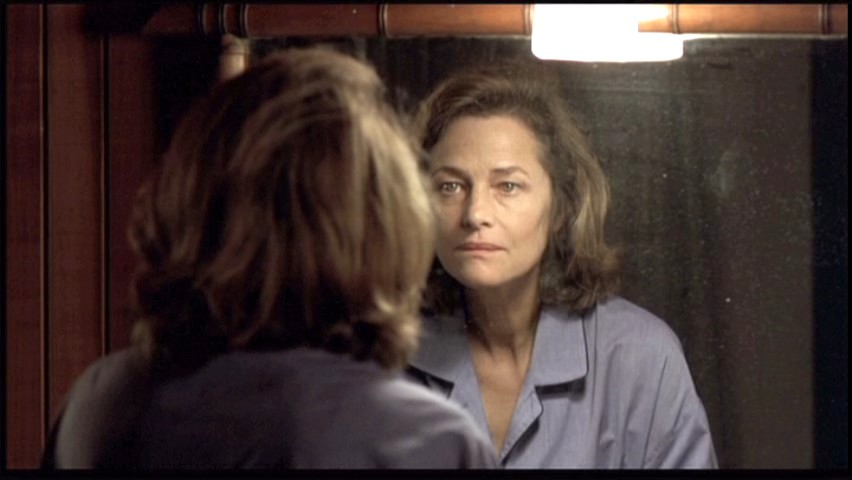
Charlotte Rampling.
Rampling is the most important actress in my career. When I met her it was like love at first sight. Under the Sand was a strong experience. I wrote the script without knowing her private life. Then I came to know that her sister died when she was young and she never saw the body. The film is about a woman who lost her husband in the sea and hasn't seen the body. She told the story during the shoot and we realized that it was so close to her story. The film was difficult to shoot because nobody believed in the story, the producers, the financiers, didn't help. We made the film against everybody. When you work against everybody and then the film is a big success, it gave us a strong bond.
Kristin Scott Thomas.
Another English actress. I have something for English actresses. For the couple in In the House, Fabrice Luchini and his wife, I wanted actors who had the rhythm of screwball comedies. I had in mind Woody Allen and Diane Keaton. I looked for a French actress, and didn't find one for this part. I thought maybe Kristin. She said yes quickly and it was a real pleasure. Great chemistry between her and Fabrice Luchini.
